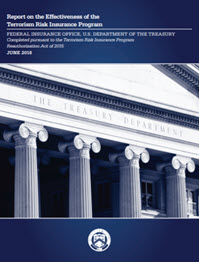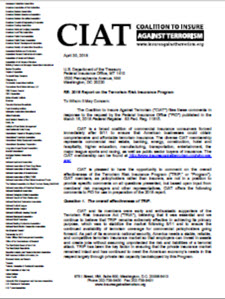During recent military actions between the United States and Iran, the real estate industry engaged in intensive information-sharing efforts with government agencies on a variety of homeland security concerns.
- As international tensions increased, informational bulletins on the potential for homeland security threats were shared by federal homeland security officials through the Real Estate Information Sharing and Analysis Center (RE-ISAC) – a public-private information sharing partnership organized and managed by The Real Estate Roundtable.
- The Roundtable’s Homeland Security Task Force (HSTF) – co-chaired by Roundtable members Dan Kennedy (URW) and Charlie McGonigal (Brookfield) – works closely with the REISAC and federal agency partners on protective measures that CRE businesses may consider as they implement infrastructure resistant to physical damage and cyber breaches. HSTF also addresses a variety of CRE homeland security issues, including the recently reauthorized Terrorism Risk Insurance Act (TRIA).
- The REISAC sends a Daily Report to members to raise awareness on domestic concerns and cyber threats affecting the U.S. commercial facilities sector, while sharing guidance from the Department of Homeland Security’s Cybersecurity and Infrastructure Security Agency (CISA).
- On Jan. 3, CISA conducted a situational update on Iranian-U.S. tensions with industry contacts. The conference call also addressed planning and preparedness efforts related to cyber, physical, and communications readiness – and coordinating information for reporting suspicious activity and/or events related to the events.
- On Jan. 6, CISA released an alert on “Potential for Iranian Cyber Response to U.S. Military Strike in Baghdad.” The same day, The New York Post reported that a senior adviser to Iran’s president posted a tweet on Sunday with a link to a Forbes article listing all of The Trump Organization’s significant properties, along with a quote from the late Ayatollah Khomeini threatening revenge against any enemies of Islam.
- The Daily Beast reported on Jan. 7 that an anonymous senior member of the U.S. intelligence community said Trump Tower in Midtown Manhattan could be more effective a target than even the White House.
- The RE-ISAC on Jan. 8 shared the retail-focused BMAP Special Advisory Bulletin which warned that, “individuals inspired to commit acts of terrorism may try to acquire or legally purchase common household items such as explosive precursor chemicals (EPCs), explosive powders, and IED components at retailers in your community to construct IEDs for use against infrastructure targets.” The bulletin also provided a list of “Suspicious Activity and Purchasing Behavior: Recognize and Report.”
- The RE-ISAC also recently distributed an announcement regarding a collaboration with the FBI and InfraGard National Capital Region to launch the Commercial Facilities Cyber Working Group (CCWG). Those who work at the intersection of commercial facilities and information security are invited to join the new Working Group by registering at https://cf.epicplatform.com. Additional ontact information for the REISAC is available here.
The next Homeland Security Task Force (HSTF) meeting is scheduled for Jan. 29, in conjunction with The Roundtable’s State of the Industry Meeting on Jan. 28 in Washington, DC.
# # #







